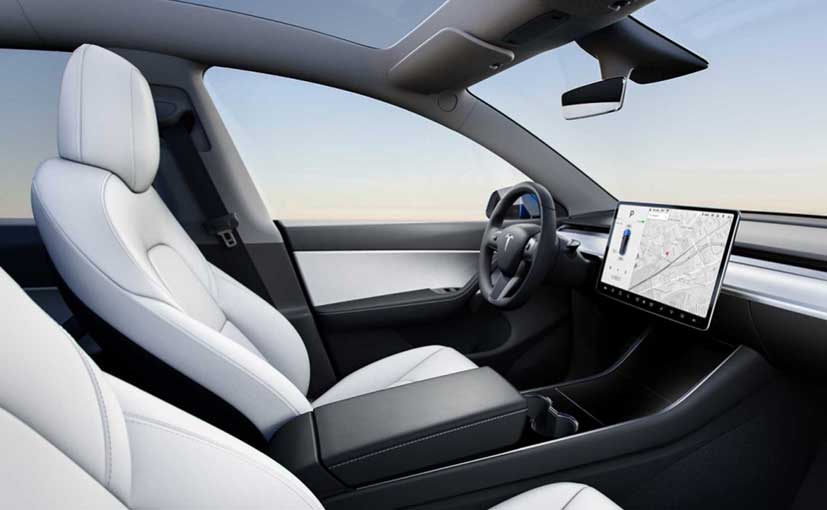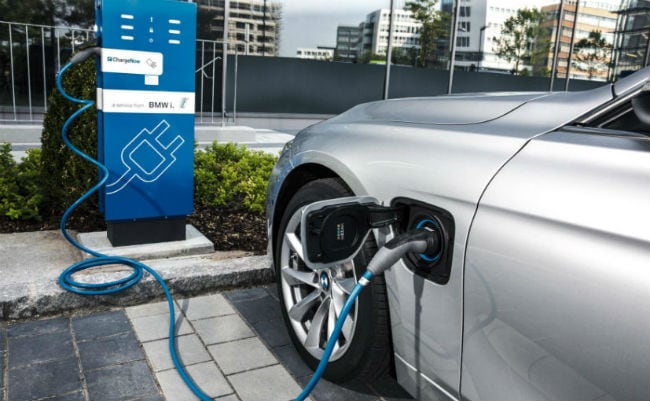Loading ScrollTabs...
Electric Cars

car&bike Team
Aug 1, 2019, 3:32 AM
The all-electric version of the Hyundai Kona exploded in an owner's garage in Montreal, Canada recently, prompting an investigation by the automaker. According to the owner - Piero Cosentino, the Hyundai Kona Electric was parked in his garage when the incident happened and according to him was unplugged from the charging point. The blast blew the garage door off in the process, while also leaving the roof partially destroyed. Local firefighters managed to douse the fire and no one was injured. Hyundai Canada has now launched an investigation into the incident.
1 Min
 IANS | Jul 28, 2019Tesla To Soon Get Netflix, YouTube Streaming Support: Elon MuskTesla CEO Elon Musk has confirmed that people would be soon able to stream videos on digital platforms like Netflix and YouTube in parked Tesla electric vehicles. "Ability to stream YouTube and Netflix when car is stopped coming to your Tesla soon! Has an amazingly immersive, cinematic feel due to the comfy seats & surround sound audio," Musk wrote on his Twitter handle.1 min read
IANS | Jul 28, 2019Tesla To Soon Get Netflix, YouTube Streaming Support: Elon MuskTesla CEO Elon Musk has confirmed that people would be soon able to stream videos on digital platforms like Netflix and YouTube in parked Tesla electric vehicles. "Ability to stream YouTube and Netflix when car is stopped coming to your Tesla soon! Has an amazingly immersive, cinematic feel due to the comfy seats & surround sound audio," Musk wrote on his Twitter handle.1 min read car&bike Team | Jul 27, 2019Motor Vehicles In India To Get More Expensive As Government Proposes Hike In Registration ChargesGovernment's proposal comes at a time when the auto industry has been witnessing decline in sales and automakers are demanding reduction in GST rates to uplift sales.1 min read
car&bike Team | Jul 27, 2019Motor Vehicles In India To Get More Expensive As Government Proposes Hike In Registration ChargesGovernment's proposal comes at a time when the auto industry has been witnessing decline in sales and automakers are demanding reduction in GST rates to uplift sales.1 min read car&bike Team | Jul 27, 2019GST Council Trims Rate On Electric Vehicles, Chargers To 5 Per CentIt also slashed the Goods and Services Tax (GST) on EV chargers from 18 per cent to 5 per cent, an official statement said after the 36th meeting of the council.1 min read
car&bike Team | Jul 27, 2019GST Council Trims Rate On Electric Vehicles, Chargers To 5 Per CentIt also slashed the Goods and Services Tax (GST) on EV chargers from 18 per cent to 5 per cent, an official statement said after the 36th meeting of the council.1 min read car&bike Team | Jul 26, 2019Magenta Power Introduces India's First Portable Electric Vehicle Charging GridGreen energy solutions provider Magenta Power has introduced India's first portable electric vehicle charging grid. The company's new ChargingGrid Series is the country's first fully integrated, unmanned, payment enabled open network of smart charging solutions. The portable grid is available in a number of configurations that makes it compatible across and four and two-wheeled electric vehicles, both old and new. The ChargeGrid series is available in a number of versions with the ChargeGrid LITE being the most affordable at Rs. 11,799. The ChargeGrid PRO has 2 variants PRO-3P and is priced at Rs. 32,499, while the PRO-T2 is priced at Rs. 39,499. The top-of-the-line ChargeGrid Ultra is priced at Rs. 48,699. The unit can be installed in a number of locations including offices, malls, and residential societies, according to the company.1 min read
car&bike Team | Jul 26, 2019Magenta Power Introduces India's First Portable Electric Vehicle Charging GridGreen energy solutions provider Magenta Power has introduced India's first portable electric vehicle charging grid. The company's new ChargingGrid Series is the country's first fully integrated, unmanned, payment enabled open network of smart charging solutions. The portable grid is available in a number of configurations that makes it compatible across and four and two-wheeled electric vehicles, both old and new. The ChargeGrid series is available in a number of versions with the ChargeGrid LITE being the most affordable at Rs. 11,799. The ChargeGrid PRO has 2 variants PRO-3P and is priced at Rs. 32,499, while the PRO-T2 is priced at Rs. 39,499. The top-of-the-line ChargeGrid Ultra is priced at Rs. 48,699. The unit can be installed in a number of locations including offices, malls, and residential societies, according to the company.1 min read car&bike Team | Jul 22, 2019100% Of Citroen Cars To Be Electric Or Hybrid By 2025The number of plug-in hybrid and all-electric cars in the world crossed the 3 million mark at the end of 2017. It went up to 5 million by the end of 2018 and is expected to go to 13 million by 2020. This is one reason why most manufacturers are making sure that they have an electrification strategy in place so as to cater to the rising demand of electric vehicles. While many manufacturers have already defined their electric path, Citroen is still in the midst of rolling out its electrification strategy, but the plans are in place.1 min read
car&bike Team | Jul 22, 2019100% Of Citroen Cars To Be Electric Or Hybrid By 2025The number of plug-in hybrid and all-electric cars in the world crossed the 3 million mark at the end of 2017. It went up to 5 million by the end of 2018 and is expected to go to 13 million by 2020. This is one reason why most manufacturers are making sure that they have an electrification strategy in place so as to cater to the rising demand of electric vehicles. While many manufacturers have already defined their electric path, Citroen is still in the midst of rolling out its electrification strategy, but the plans are in place.1 min read AFP | Jul 21, 2019UK Car Sector Accelerates Towards Electric FutureBritain's auto industry, seeking to swerve Brexit obstacles, is accelerating toward electrification as consumers shun high-polluting diesels, driven by rapid advances in technology and greener government policy. Four famous car brands born in Britain but now foreign-owned -- German-held Bentley and Mini, Indian-backed Jaguar Land Rover, and Chinese-controlled Lotus -- have each this month outlined plans for purely electric models to sit alongside their petrol vehicles.1 min read
AFP | Jul 21, 2019UK Car Sector Accelerates Towards Electric FutureBritain's auto industry, seeking to swerve Brexit obstacles, is accelerating toward electrification as consumers shun high-polluting diesels, driven by rapid advances in technology and greener government policy. Four famous car brands born in Britain but now foreign-owned -- German-held Bentley and Mini, Indian-backed Jaguar Land Rover, and Chinese-controlled Lotus -- have each this month outlined plans for purely electric models to sit alongside their petrol vehicles.1 min read car&bike Team | Jul 19, 2019Indonesia Aims To Start Electric Vehicle Production In 2022Indonesia is aiming to start producing electric vehicles (EVs) in 2022, a senior official at the Industry Ministry told Reuters on Thursday, after a number of companies disclosed plans to invest in the country.1 min read
car&bike Team | Jul 19, 2019Indonesia Aims To Start Electric Vehicle Production In 2022Indonesia is aiming to start producing electric vehicles (EVs) in 2022, a senior official at the Industry Ministry told Reuters on Thursday, after a number of companies disclosed plans to invest in the country.1 min read car&bike Team | Jul 18, 2019Ministry Of Road Transport & Highways Tells States To Incentivise EV AdoptionThe government of India is strongly pushing for electric vehicle adoption in the country and the Ministry of Road Transport & Highways has now issued an advisory for incentivising EV adoption to all state transport departments.1 min read
car&bike Team | Jul 18, 2019Ministry Of Road Transport & Highways Tells States To Incentivise EV AdoptionThe government of India is strongly pushing for electric vehicle adoption in the country and the Ministry of Road Transport & Highways has now issued an advisory for incentivising EV adoption to all state transport departments.1 min read
Loading RankedProductCard...
Loading RankedProductCard...
Loading CategoryList...














































